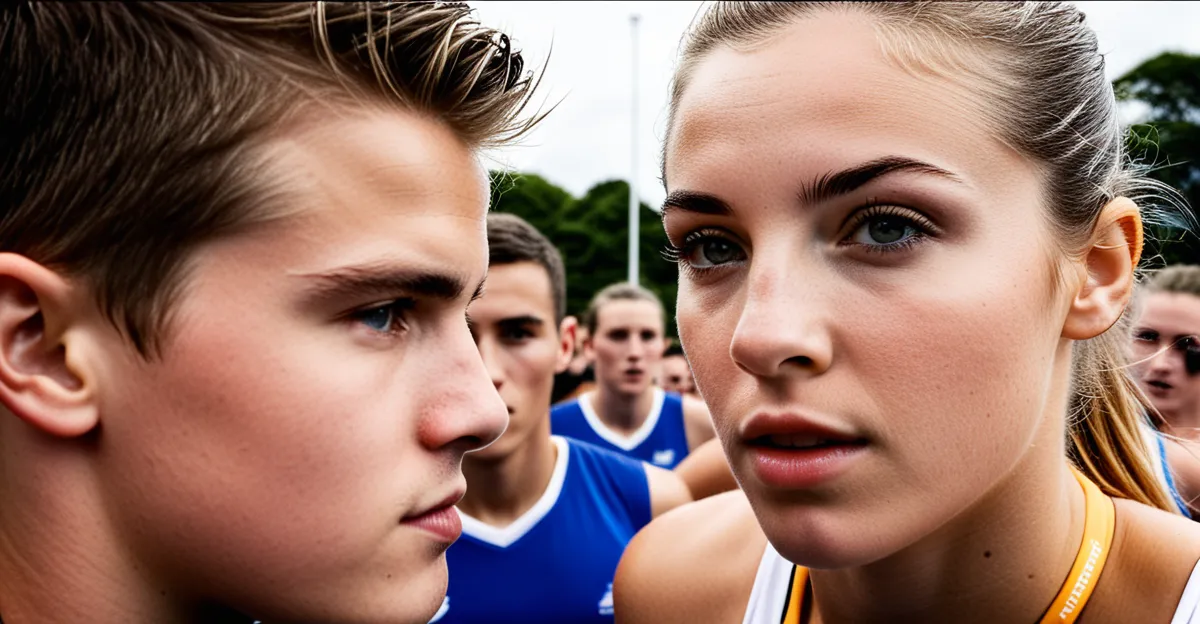The Influence of UK Athletes on Youth Sports Participation
UK athletes often serve as powerful sports role models, inspiring a surge in youth sports engagement. Their high visibility on national and international stages encourages young people to take part in physical activities, driven by the desire to emulate their heroes. When youth see athletes succeeding and persevering, it ignites enthusiasm for trying sports themselves.
The connection between athlete visibility and increased participation is evident in various sports disciplines. For example, the presence of prominent UK athletes in football, athletics, and tennis has led to measurable rises in grassroots involvement. Their stories of determination and success resonate deeply with young fans, fostering both motivation and a sense of belonging.
In parallel : How Can Innovations in UK Sports Influence Global Practices?
Inspirational stories play a pivotal role in this process. Many young people find encouragement in athletes who overcome challenges such as injury, adversity, or lack of resources. These narratives create a personal link between athletes and youth, enhancing engagement with sports beyond just the physical activity. This influence is particularly strong when athletes share these experiences publicly or through community outreach, amplifying their impact as genuine sources of inspiration.
In summary, UK athletes significantly drive youth engagement by embodying qualities that inspire participation, perseverance, and passion for sports.
In the same genre : How Are UK Sports Adapting to Climate Changes?
Prominent UK Athletes Acting as Role Models
Prominent famous UK athletes play a crucial role as sports role models by demonstrating excellence, resilience, and professionalism. Their public visibility not only showcases talent but also sets behavioural standards for young fans. For example, athletes like Mo Farah and Jessica Ennis-Hill have become household names whose success stories extend beyond medals, influencing youth by embodying commitment and humility.
How does athlete behaviour affect youth? Athletes’ actions on and off the field serve as real-life lessons. When UK athletes exhibit sportsmanship, community involvement, or advocate for positive causes, they provide role models for youth engagement. This modelling helps young people develop values such as respect, teamwork, and perseverance.
Do their success stories resonate with future generations? Yes, these stories inspire youth by highlighting struggles and triumphs, making aspirations tangible. For instance, overcoming injury or socioeconomic challenges connects athletes with young fans, underlining that dedication can lead to achievements.
In sum, famous UK athletes influence youth not only through their sporting achievements but also through the values and behaviours they publicly display, reinforcing their role as powerful sports role models and sources of genuine inspiration.
Community Outreach and Mentorship Initiatives
Community outreach and athlete mentoring are pivotal in extending the influence of UK athletes beyond competitive arenas. Many prominent UK athletes actively participate in youth engagement programs, partnering with schools and local sports clubs to foster early interest and sustained involvement in sports. These initiatives provide young people direct access to role models who exemplify dedication and sportsmanship.
What role does mentoring play? Mentoring efforts often involve motivational talks where athletes share personal journeys, highlighting challenges and successes. This personalized interaction boosts confidence and motivation among young athletes, reinforcing lessons that transcend sport itself, such as discipline and resilience.
How do these outreach programs benefit communities? By collaborating with charities and youth organisations, UK athletes help create inclusive environments that encourage participation regardless of background. This approach addresses barriers to entry and promotes equal opportunities, increasing youth sports engagement systematically.
Examples include footballers visiting schools to run training sessions, or Olympic athletes conducting workshops focused on both physical skills and mental preparation. Such hands-on involvement ensures that the positive impact of sports role models is not confined to media portrayal but is felt directly within communities, inspiring the next generation to pursue sport actively and with passion.









